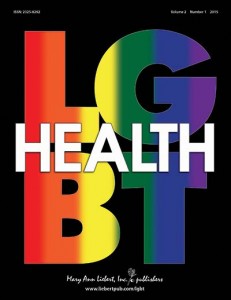 NEW ROCHELLE, N.Y., — A new CDC study that combines three years of data to produce nationally representative estimates characterizing HIV-infected adults receiving care in the U.S. shows that those who identify as transgender women are significantly less likely to adhere to anti-HIV medication regimens and to achieve viral suppression. In addition, they have higher unmet needs for basic services such as food and housing than non-transgender men and women. These findings are described in an article in LGBT Health, a peer-reviewed journal from Mary Ann Liebert, Inc., publishers. The article is available free on the LGBT Health Web site until July 8.
NEW ROCHELLE, N.Y., — A new CDC study that combines three years of data to produce nationally representative estimates characterizing HIV-infected adults receiving care in the U.S. shows that those who identify as transgender women are significantly less likely to adhere to anti-HIV medication regimens and to achieve viral suppression. In addition, they have higher unmet needs for basic services such as food and housing than non-transgender men and women. These findings are described in an article in LGBT Health, a peer-reviewed journal from Mary Ann Liebert, Inc., publishers. The article is available free on the LGBT Health Web site until July 8.
Yuko Mizuno, PhD, Emma Frazier, PhD, Ping Huang, and Jacek Skarbinski, MD, Centers for Disease Control and Prevention (CDC), Atlanta, GA, found that the HIV-infected transgender women were socioeconomically more marginalized than the HIV-infected non-transgender study members, and overall had a lower income, were more likely to be homeless, and were less likely to have health insurance. These factors may contribute to the differences in antiretroviral therapy (ART) adherence and viral load suppression reported in the article “Characteristics of Transgender Women Living with HIV Receiving Medical Care in the United States.”
“The fact that, compared to other groups in treatment, transwomen had less ART adherence and viral load suppression but more unmet needs for supportive services requires follow-up studies to inform remedial actions,” says LGBT Health Editor-in-Chief William Byne, MD, PhD, James J. Peters VA Medical Center, Bronx, NY, and Icahn School of Medicine at Mount Sinai, New York, NY.











